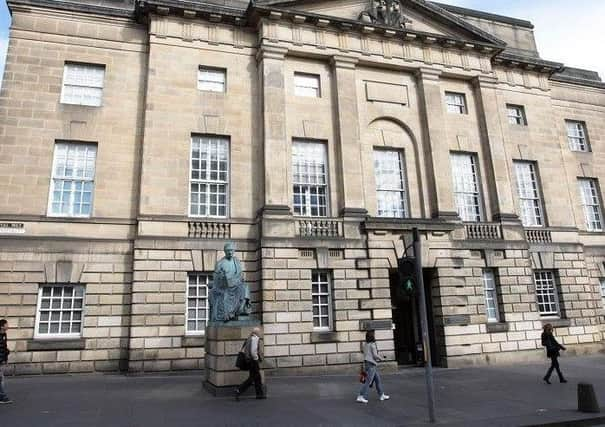Concern over role of TV cameras in Scottish courts


Professor Dame Sue Black said that televising trial proceedings would make a “challenging environment” even more stressful for scientists asked to appear.
Work is currently under way to implement the recommendations of a review led by Lady Dorrian which called for a relaxation of the rules, including the broadcasting of civil and criminal appeals and allowing the filming of some criminal trials for documentary purposes.
Advertisement
Hide AdAdvertisement
Hide AdWhile live broadcasts of criminal trials appears some way off, Prof Black said such a move would probably put off experts from appearing.
She said: “Every single time an expert gets up into the witness box, their reputation is on the line. Depending upon how it goes in court, you will either come out as the greatest witness in the world or perhaps a lot less so.
“There are witnesses who have had such dreadful experiences in court that they have never done it again – it’s too confrontational, too adversarial for them. There’s a lot of expert witness get to that point and they’re done. If you add a camera into that, you add an extra dimension into something which is already stressful.
“A courtroom is not a natural place for a scientist to occupy. It’s already a challenging environment to occupy, making it into a televised environment just adds additional stress.”
Prof Black said that she stopped appearing in TV programmes after finding herself giving evidence in a court case during a run of the popular History Cold Case series in 2011.
She said: “I found myself in the middle of these run of programmes, giving evidence in court.
“When I stood up in the witness box, the judge told the jury he was aware they had seen me on TV the night before, but that I was to be thought of as an expert witness, not a TV celebrity.
“I found that a very disturbing thing for him to say to the courtroom. That was the point at which I stopped doing television. I want to be doing my job, not fronting TV programmes.”
Advertisement
Hide AdAdvertisement
Hide AdTelevision cameras have been allowed into Scottish courts on a number of occasions over the past few years.
The retrial in 2012 of Nat Fraser for the murder of his wife Arlene in 1998 was filmed by Channel 4 and shown as The Murder Trial.
In 2012, legal history was made when David Gilroy became the first convicted killer to have his sentencing filmed for TV. Gilroy was jailed for murdering bookkeeper Suzanne Pilley, whose body has never been found.
Publishing her report in 2015, Lady Dorrian noted that concerns remain about screening criminal trials live, including the possibility that television coverage would make witnesses reluctant to give evidence and influence those due to give evidence.